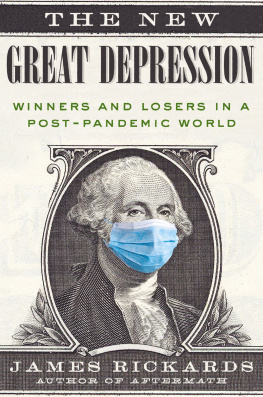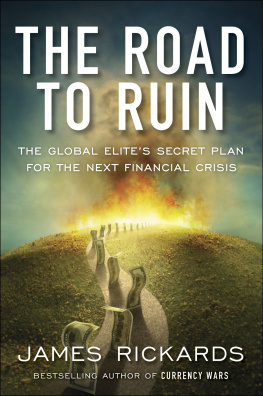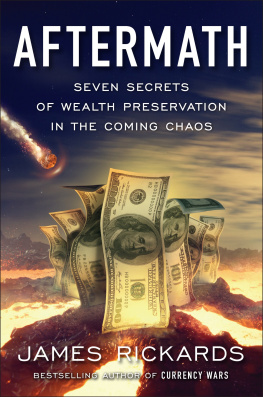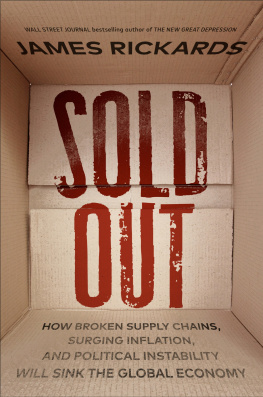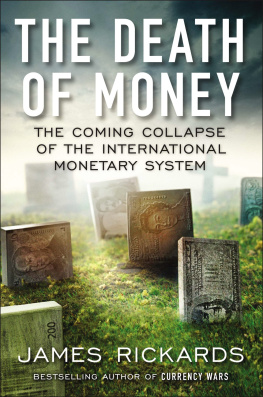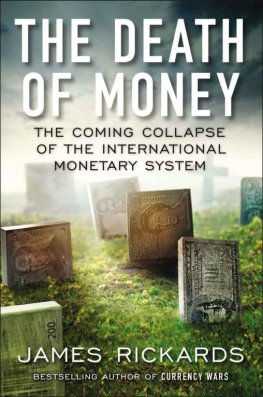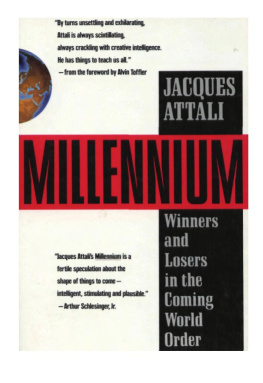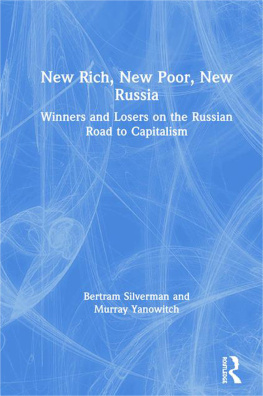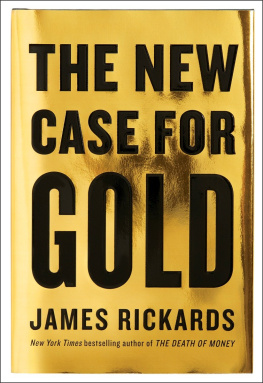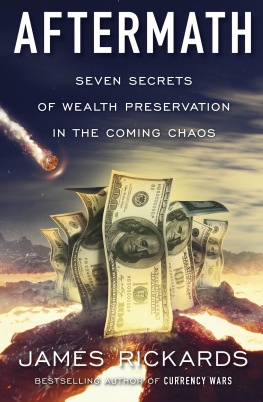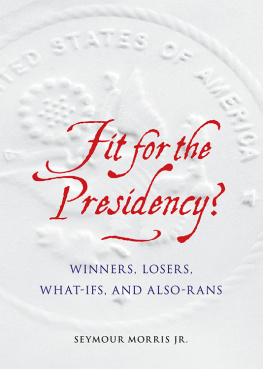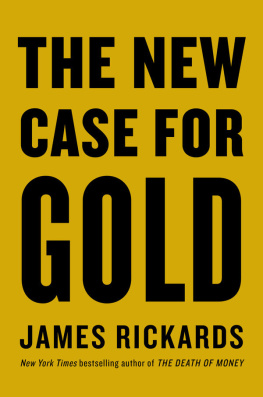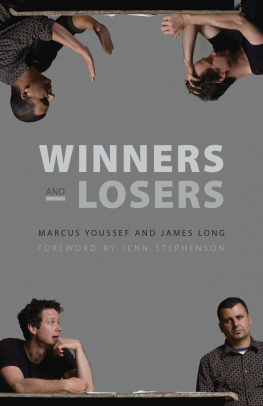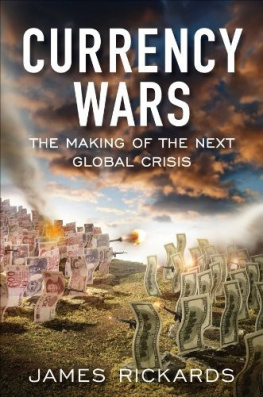James Rickards - The New Great Depression: Winners and Losers in a Post-Pandemic World
Here you can read online James Rickards - The New Great Depression: Winners and Losers in a Post-Pandemic World full text of the book (entire story) in english for free. Download pdf and epub, get meaning, cover and reviews about this ebook. year: 2021, publisher: Penguin Publishing Group, genre: Politics. Description of the work, (preface) as well as reviews are available. Best literature library LitArk.com created for fans of good reading and offers a wide selection of genres:
Romance novel
Science fiction
Adventure
Detective
Science
History
Home and family
Prose
Art
Politics
Computer
Non-fiction
Religion
Business
Children
Humor
Choose a favorite category and find really read worthwhile books. Enjoy immersion in the world of imagination, feel the emotions of the characters or learn something new for yourself, make an fascinating discovery.
- Book:The New Great Depression: Winners and Losers in a Post-Pandemic World
- Author:
- Publisher:Penguin Publishing Group
- Genre:
- Year:2021
- Rating:4 / 5
- Favourites:Add to favourites
- Your mark:
- 80
- 1
- 2
- 3
- 4
- 5
The New Great Depression: Winners and Losers in a Post-Pandemic World: summary, description and annotation
We offer to read an annotation, description, summary or preface (depends on what the author of the book "The New Great Depression: Winners and Losers in a Post-Pandemic World" wrote himself). If you haven't found the necessary information about the book — write in the comments, we will try to find it.
The New Great Depression: Winners and Losers in a Post-Pandemic World — read online for free the complete book (whole text) full work
Below is the text of the book, divided by pages. System saving the place of the last page read, allows you to conveniently read the book "The New Great Depression: Winners and Losers in a Post-Pandemic World" online for free, without having to search again every time where you left off. Put a bookmark, and you can go to the page where you finished reading at any time.
Font size:
Interval:
Bookmark:
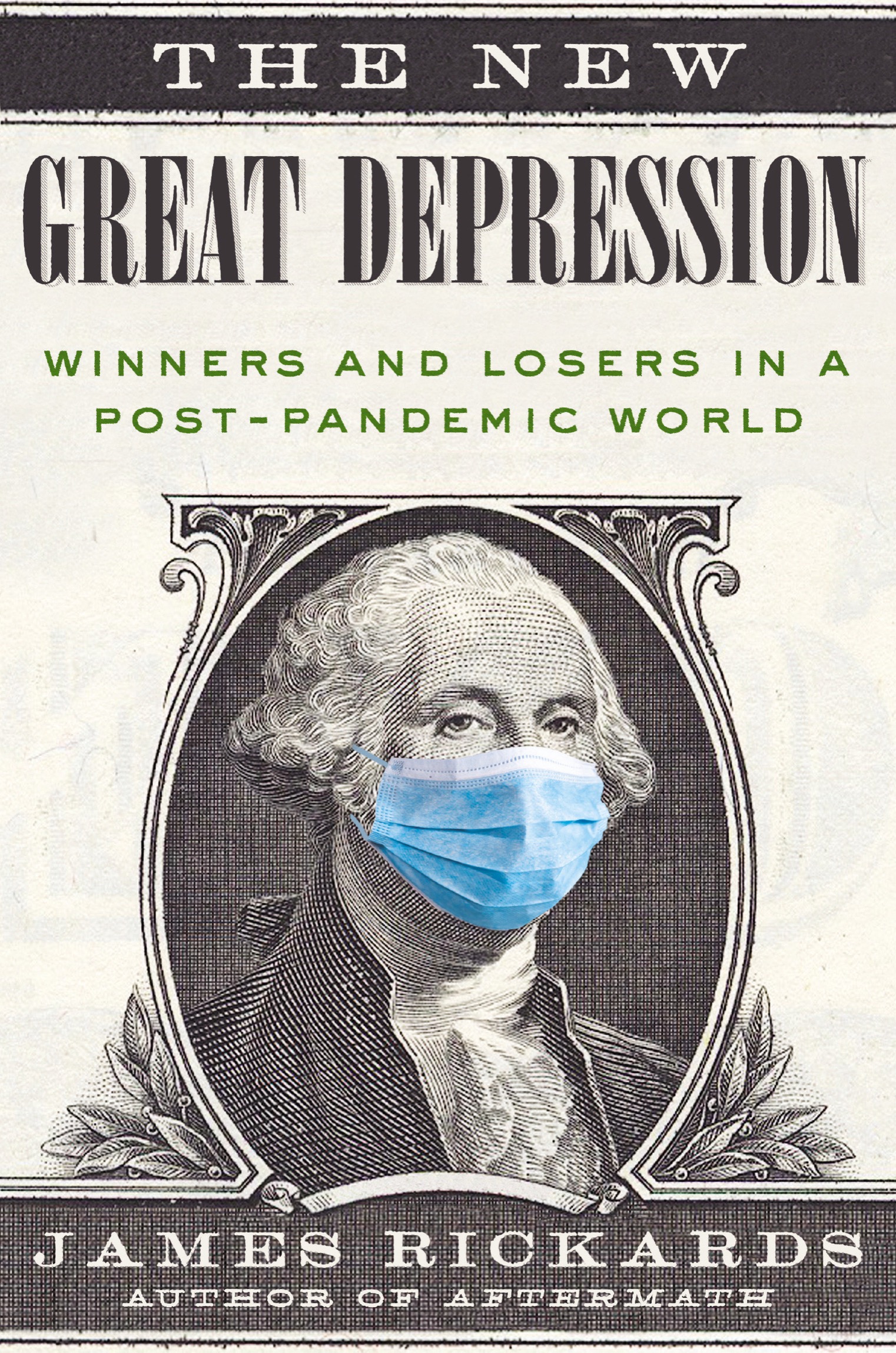
Currency Wars
The Death of Money
The New Case for Gold
The Road to Ruin
Aftermath
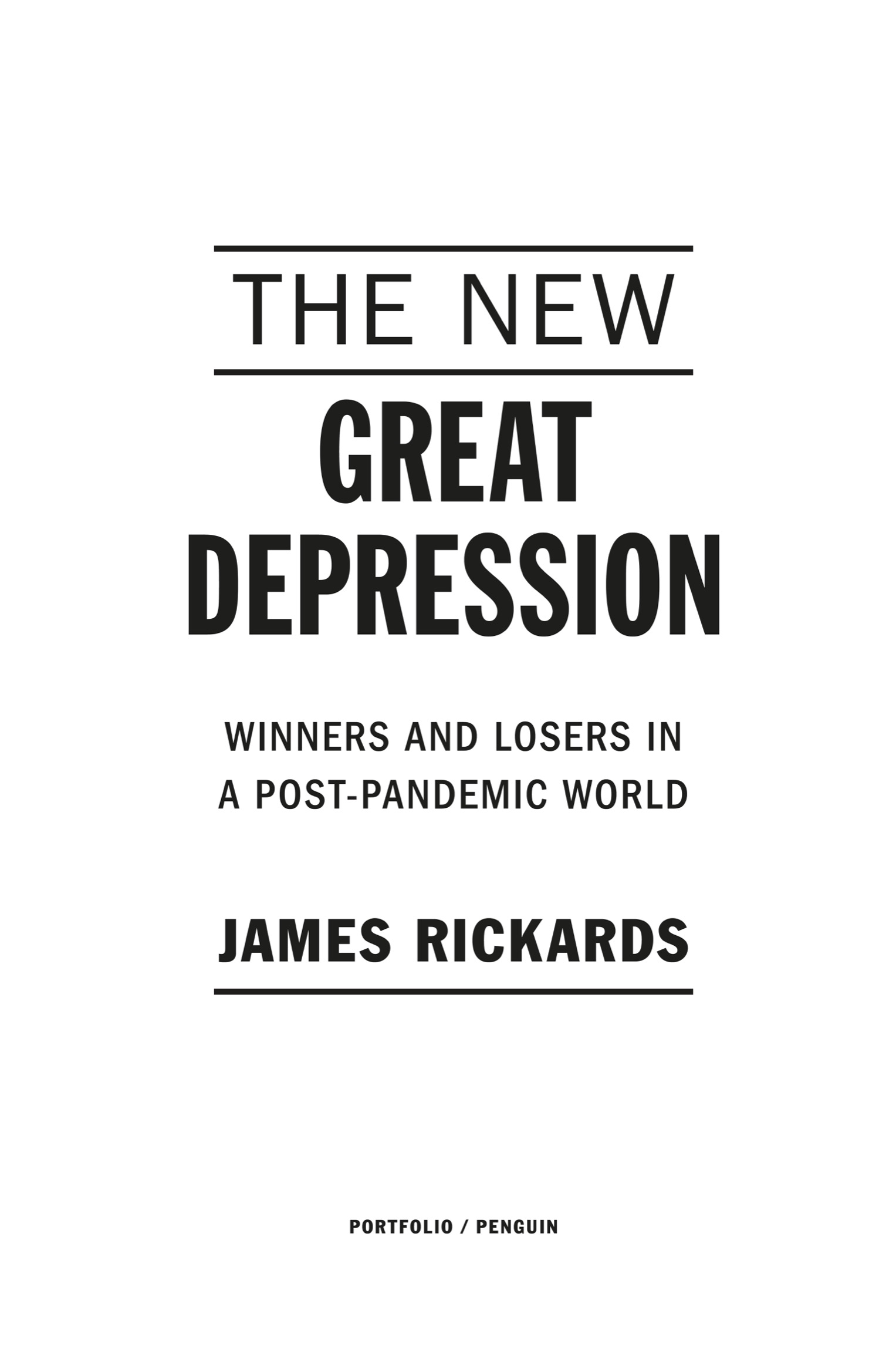

Portfolio/Penguin
An imprint of Penguin Random House LLC
penguinrandomhouse.com

Copyright 2021 by James Rickards
Penguin supports copyright. Copyright fuels creativity, encourages diverse voices, promotes free speech, and creates a vibrant culture. Thank you for buying an authorized edition of this book and for complying with copyright laws by not reproducing, scanning, or distributing any part of it in any form without permission. You are supporting writers and allowing Penguin to continue to publish books for every reader.
Library of Congress Control Number: 2020942696
ISBN 9780593330272 (hardcover)
ISBN 9780593330289 (ebook)
pid_prh_5.6.1_c0_r0
For those who suffered from the new virus, and those still suffering and their families. And for those suffering from the New Great Depression.
And to the memory of Sara Lesleystill standing tall.
And I saw another sign in heaven, great and marvelous, seven angels having the seven last plagues; for in them is filled up the wrath of God.
Revelation 15:1
Historically, pandemics have forced humans to break with the past and imagine their world anew. This one is no different. It is a portal, a gateway between one world and the next.
Arundhati Roy, Financial Times (April 3, 2020)
It is going to be hard to go back to normal, especially now that we are constantly informed that we cannot go back to normal.
Lionel Shriver, Spiked (May 11, 2020)
This book is about a virus that caused a global depression. More precisely, its about how our reaction to a virus caused a global depression. A virus can cause disease and pandemic, yet it cannot directly cause an economic collapse; thats up to us.
We made many choices when the extent of the viral attack became clear. Those choices were informed and at times misinformed by science and economics. Since the virus was new and scientists were not in accord, choices offered by science were both muddled and contradictory. To say the economic choices were muddled and contradictory seems redundant. Still, scientists and economists acted mostly in good faith and always under extreme duress due to the suddenness and lethality of the disease. They did the best they could. Its not clear another expert team would have done better under the circumstances.
As always in crises, there were heroes. Nurses, doctors, and hospital staff were overwhelmed with new cases of infection and coped with acute shortages of protective gear, treatment equipment, and some simple medications. Many worked to the point of exhaustion. Some were infected and, sadly, some died. Individuals attended to loved ones suffering from the virus when hospital facilities were unavailable or unavailing. Sanitation staff scrubbed streets and buildings inside and out to dispel the virus. Charitable groups offered meals to those quarantined or otherwise shut in. Religious bodies erected tent hospitals in bare fields. The Army Corps of Engineers, National Guard, and other military units also built field hospitals almost overnight in large public spaces such as the Javits Center in New York City. Customs and Border Protection officers acted as medical screeners for inbound travelers. The U.S. Navy surged two hospital ships, USNS Mercy to Los Angeles and USNS Comfort to New York City, to provide added intensive care and surgical capacity to overstretched systems. Similar efforts were made around the world, especially in hard-hit countries like Italy, Spain, Brazil, and the UK. There are more unsung heroes. They all deserve our thanks and prayers.
Still, the suffering of virus victims and the caregivers sacrifice should not blind us to a different source of miserythe New Great Depression. Policy choices in the face of pandemic have caused the greatest economic collapse in U.S. history. And that collapse is not confined to the United States. The pandemic began in China. It afflicted the greatest number of individuals in the United States, if Chinese data can be believed, which is doubtful. The United States and China are the worlds two largest economies, producing 40 percent of global GDP. If the European Union (EU)home to Italy, France, Spain, and Germany, among other large economies, which have suffered over 130,000 virus-related deathsis treated as a single economy and added to the United States and China, the percentage of global output subject to pandemic shutdown exceeds 60 percent.
Comparisons to the 2008 global financial crisis, the 2000 dot-com collapse, and the 1998 financial panic miss the point. Those crises, while critical to those affected, were trivial compared with whats upon us now. The first Great Depression, from 1929 to 1940, offers a better frame of reference, yet even that cataclysm does not capture the extent of what happened in 2020 and what is yet to come. The 89.2 percent stock market crash that occurred during the Great Depression played out in stages over four years (192932). The 60 million U.S. job losses in the New Great Depression have played out in just over four months, and more losses are coming.
This book is written from the perspective of economics, not virology. Still, the topics are intertwined. Writing a book on the New Great Depression without discussing the virus (SARS-CoV-2) would be like writing about destruction and loss of life in New Orleans in 2005 without mentioning Hurricane Katrina. The virus is the hurricane. The depression is the destruction in its wake. We cover both to tell the whole story.
What is a virus? Scientists are not sure. They know a lot about viruses. Still, after a century of stunning scientific progress, medicine remains divided on what a virus is. As described by author John M. Barry in his book The Great Influenza, viruses are enigmatic:
Viruses do not eat or burn oxygen for energy. They do not engage in any process that could be considered metabolic. They do not produce waste. They do not have sex. They make no side products, by accident or design. They do not even reproduce independently. They are less than a fully living organism but more than an inert collection of chemicals.
Importantly, scientists are not sure if a virus is even a life form. Some take the view that a virus is a primitive life form from which other more complex forms of life evolved. Others believe that a virus is the result of devolution rather than evolutionthat the virus had a predecessor, which was a higher form of life that simplified or devolved into what we see today. Another view is that viruses began as part of a living cell that separated and emerged with unique properties, yet not fully alive. Not knowing if a virus is even alive is just the beginning of humankinds struggle with the microscopic foe.
What is known is that a virus is a master of replication. They do not do this on their own. Instead, viruses invade a living cell, take over the host cells energy and DNA, embed their own genes (coded in RNA, a less complicated form of DNA), and then, in effect, order the host cell to replicate the virus by the thousands. In time, the cell wall bursts, the virus copies are released, and the process continues, now on a far larger scale. A viral swarm has begun.
Font size:
Interval:
Bookmark:
Similar books «The New Great Depression: Winners and Losers in a Post-Pandemic World»
Look at similar books to The New Great Depression: Winners and Losers in a Post-Pandemic World. We have selected literature similar in name and meaning in the hope of providing readers with more options to find new, interesting, not yet read works.
Discussion, reviews of the book The New Great Depression: Winners and Losers in a Post-Pandemic World and just readers' own opinions. Leave your comments, write what you think about the work, its meaning or the main characters. Specify what exactly you liked and what you didn't like, and why you think so.

